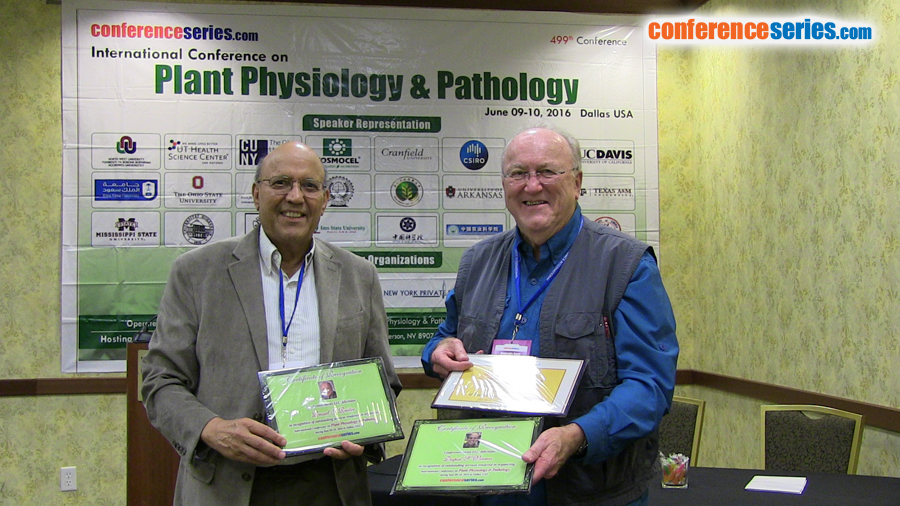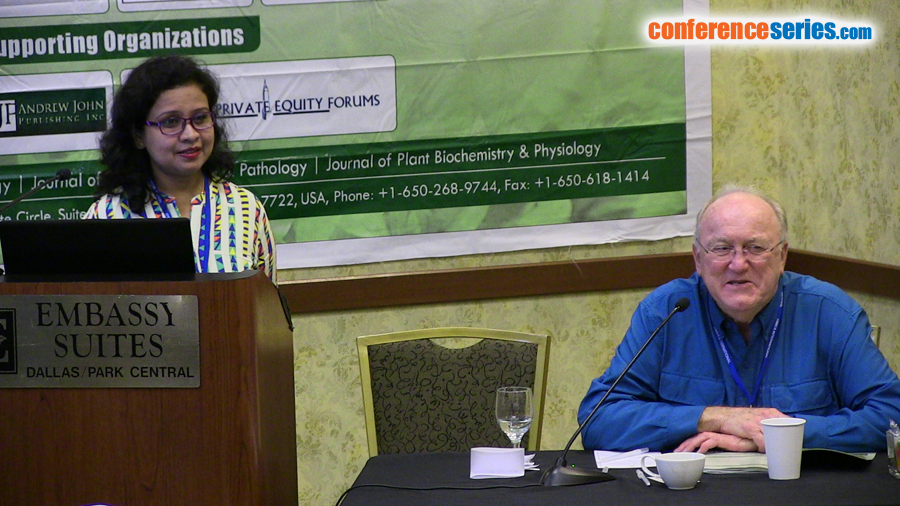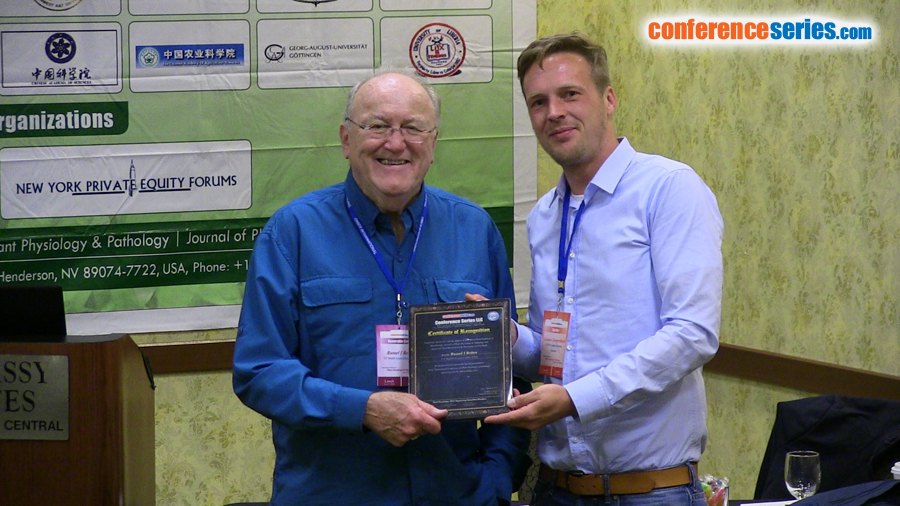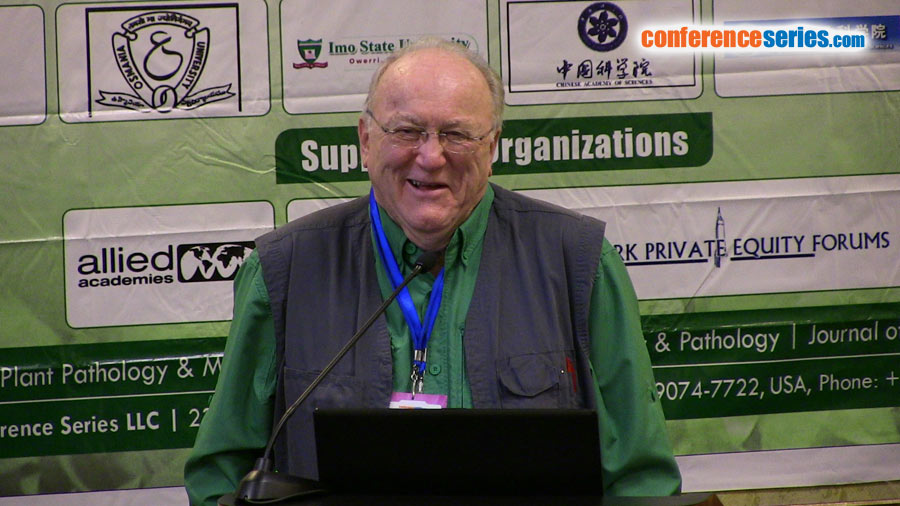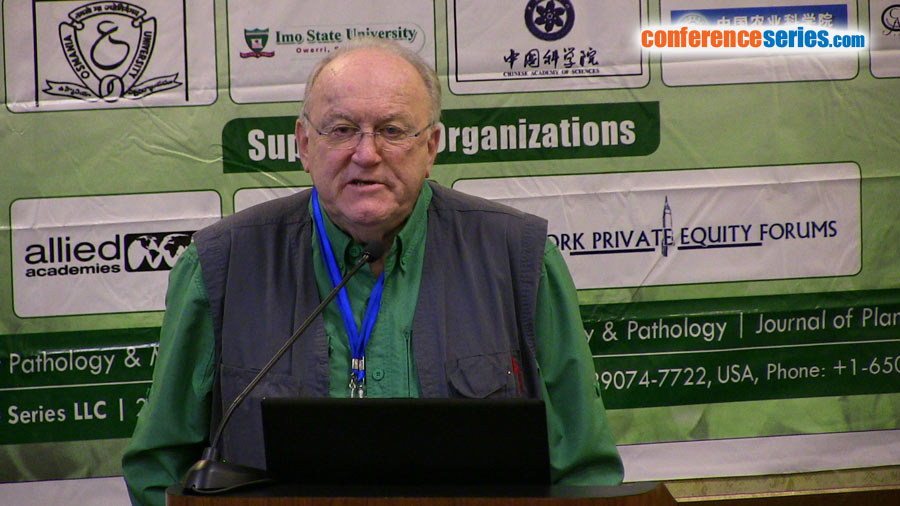
Russ Reiter
UT Health Science Center, USA
Title: Phytomelatonin: Improving hardiness, stress tolerance and crop production
Biography
Biography: Russ Reiter
Abstract
Melatonin, an ancient molecule and well known animal hormone which was recently discovered in plants, has numerous beneficial actions in economically-important plant species. Melatonin is a tryptophan derivative which has been identified in all plant species investigated. The concentration of melatonin in plants varies widely depending on stage of maturation, plant organ in which it is measured, plant species and previous stress exposure of the plant. Since they are sessile, plants are subjected to more abiotic and biotic stressors than are animals. Like a number of other small molecules, e.g., polyamines, melatonin increases plant tolerance to a variety of abiotic stresses including salinity, drought, excessive water, heat, cold, freezing, ultraviolet radiation, excessive light and heavy metal toxicity. When exposed to any of these stresses, plants upregulate endogenous melatonin synthesis thereby improving their tolerance to environmental insults. Likewise, melatonin added to the growth medium is taken up by the root systems to improve plant hardiness. Melatonin also protects apple leaves from a biotic stress (Marssonina fungus). Melatonin promotes chlorophyll synthesis in sprouting plants and inhibits chlorophyll degradation during light deprivation. It also helps to maintain ion homeostasis and inhibit senescence-associated genes. When melatonin was added to the seed coating solution used for soybeans, the subsequent growth of the plants was improved (taller plants and larger leaves) and soybean yield (number of pods and number of seeds) was improved. High throughput RNA sequence analysis showed treatment of Bermuda grass with melatonin upregulated 2,361 genes while down regulating 1,572 genes.


